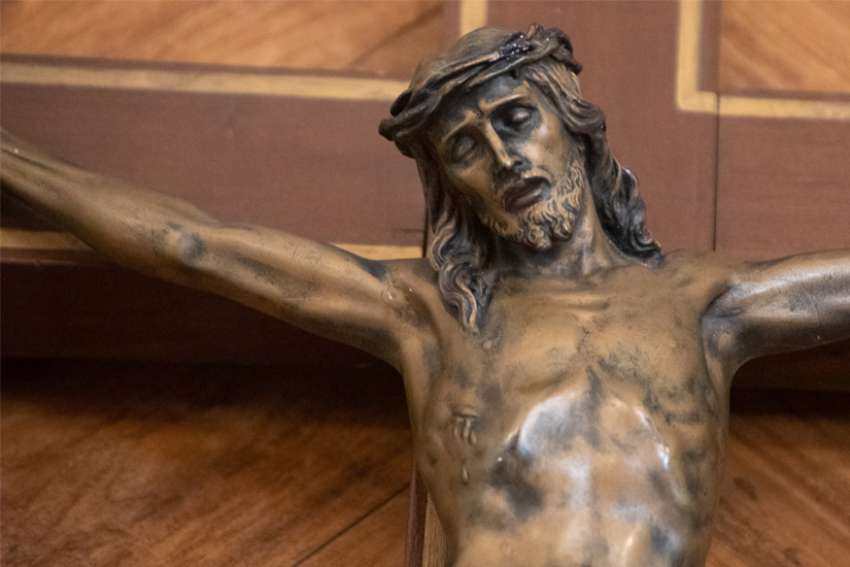David was in that situation. Driven by his paranoid and murderous urges, Saul had been trying to hunt David down and kill him. Having snuck into Saul’s encampment at night while everyone was asleep (great security!), he had his chance at last. David’s lieutenant Abishai was practically begging him to order him to strike. He promised to make short work of Saul. That would have been all too easy and in David’s eyes, it would have been terribly wrong. After all, Saul was anointed king of Israel by the Lord, so who was David to end his life?
He decided to take the high moral ground. He took Saul’s spear and water jar and left the camp. From a distance, he showed these prizes to Saul and made it clear that he could have killed him but chose not to do so. David challenged Saul to treat him with the same respect and care. A chastened Saul blessed David and went on his way. But they did not live happily ever after, for Saul slid deeper into darkness and depravity and finally met his death on the battlefield.
This account was written to counter insinuations on the part of some that David had usurped the throne of Israel and perhaps even been responsible for Saul’s downfall. The point of the story is that this was not the case — David could have but did not.
We may be faced with situations in which we could retaliate for real or imagined wrongs done to us. It may be tempting to pass negative gossip about a person or even dish out insults or unkind words. We might even have the opportunity to harm them in some way. This is the road often taken, but it is not the road that leads to God.
By stepping out of our negative thoughts and feelings and choosing to treat our enemies with dignity and respect, we inch closer to God. We need not boast of our moral superiority as David did, for the practice of kindness and compassion is its own reward.
Paul made it clear that flesh and blood cannot inherit the kingdom of God. But he had to explain how we will then be raised up to be with God. In a masterful argument, he contrasted the earthly and heavenly, the physical and spiritual and the perishable and imperishable. We are a work in progress, and we need to expand our thinking and our imagination a bit. When we are raised up, we will be transformed into spiritual and heavenly beings. We will leave the earthly and the physical behind but only to experience a far greater reality.
Jesus raised the bar to an incredible height by His insistence that we love in the way that God does, for God is kind to the ungrateful and the wicked. Jesus urges us to love our enemies and persecutors and pray for them. We are to love everyone without conditions or distinctions and avoid judging or condemning. Loving only those who are like us or those who love us in return is all too easy and is the lazy approach.
The same applies to hating or seeking revenge. All this sounds like a recipe for victimhood and doormat status, but the truth is far different. God is merciful and no one would accuse God of being weak. We are told to be merciful just as God is. The conclusion is that being merciful is a source and sign of strength rather than weakness. By being the mirror of God’s mercy in our dealings with others, we will be recognized as “the real thing” — children of the Most High God.
In our own day the image of religion and the name of God have been badly tarnished. But Jesus has given us the antidote in this description of divine mercy and love. What greater reward can we have than to be recognized as a reflection of divine love and mercy? In other words, children of the Most High God.


